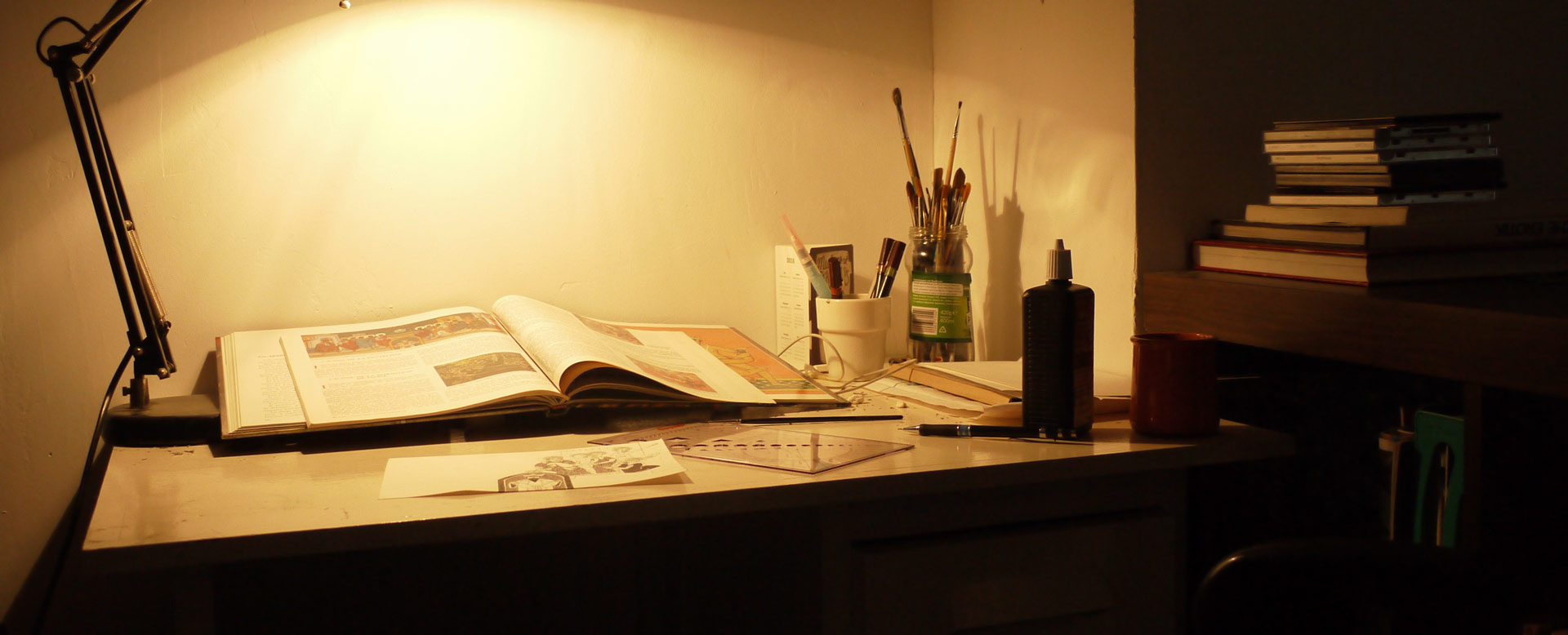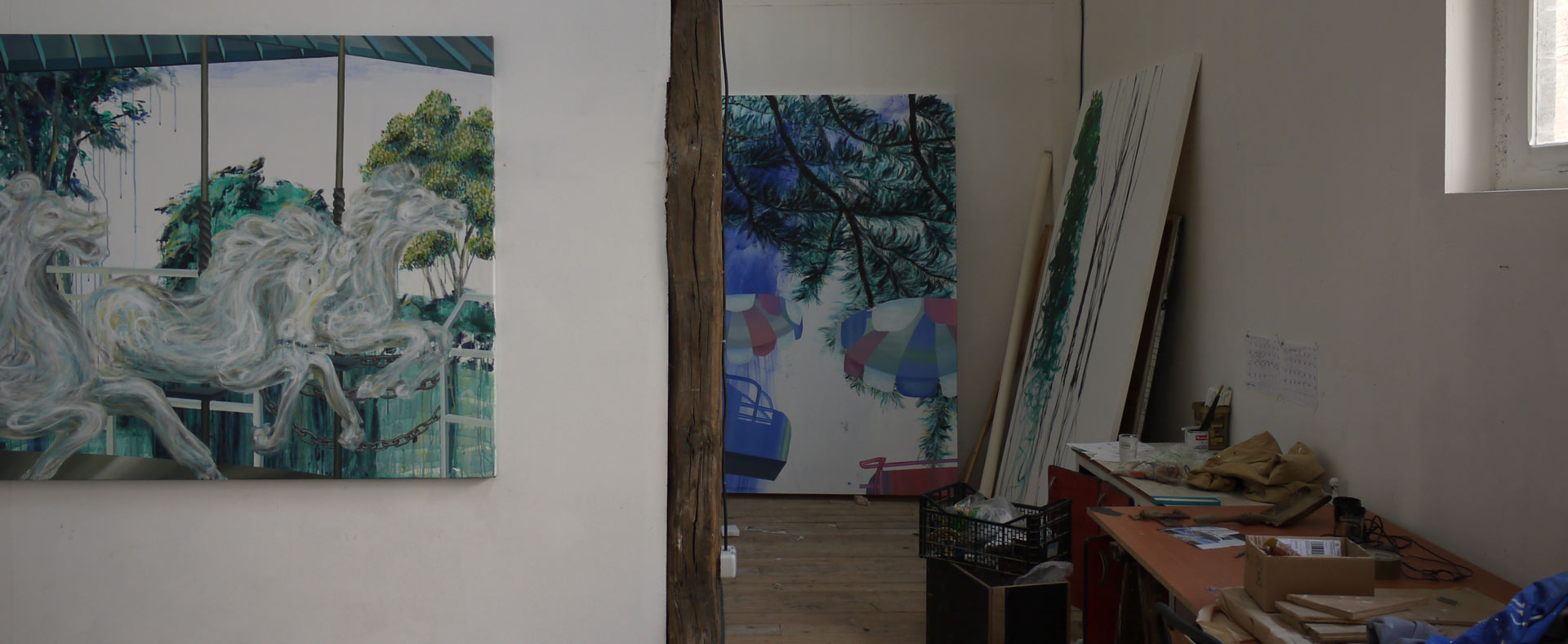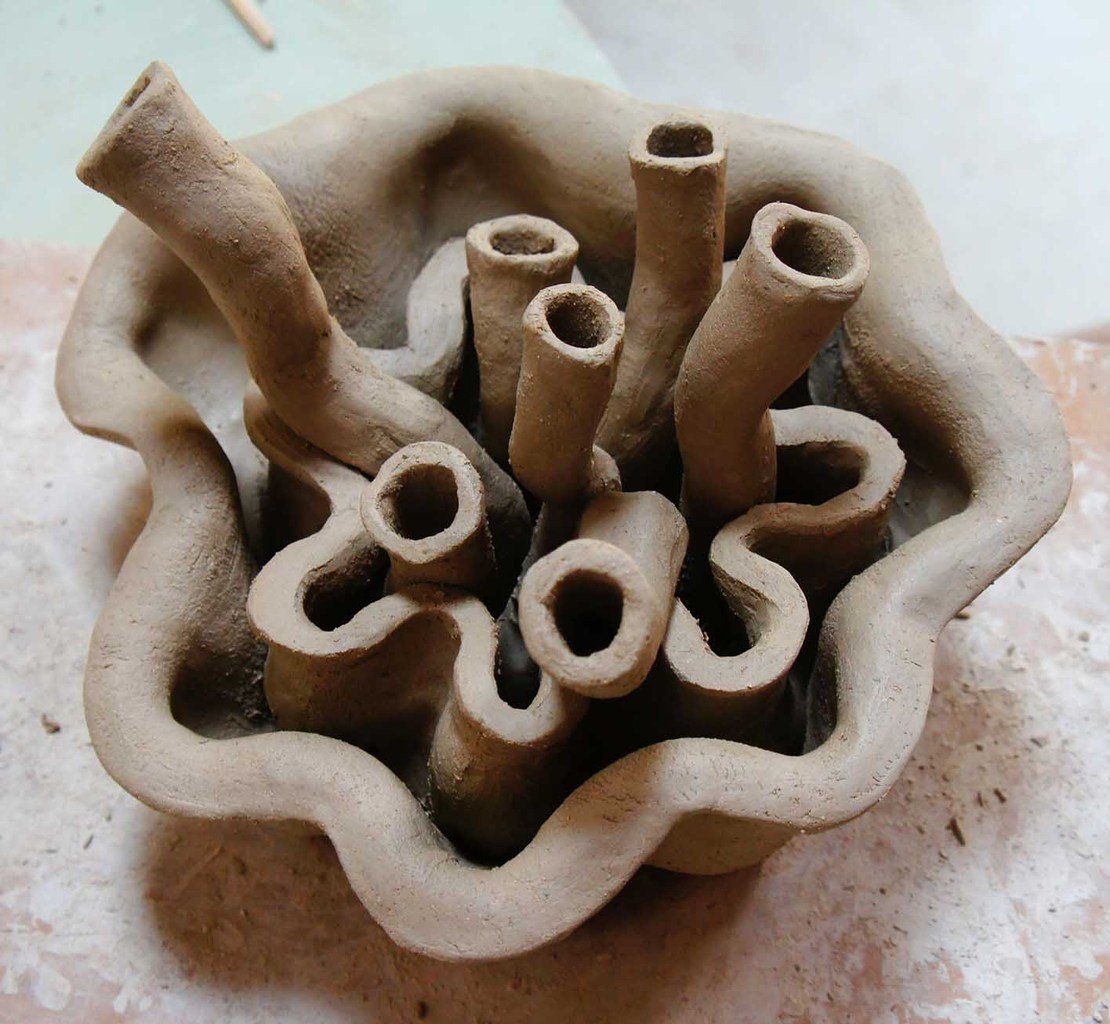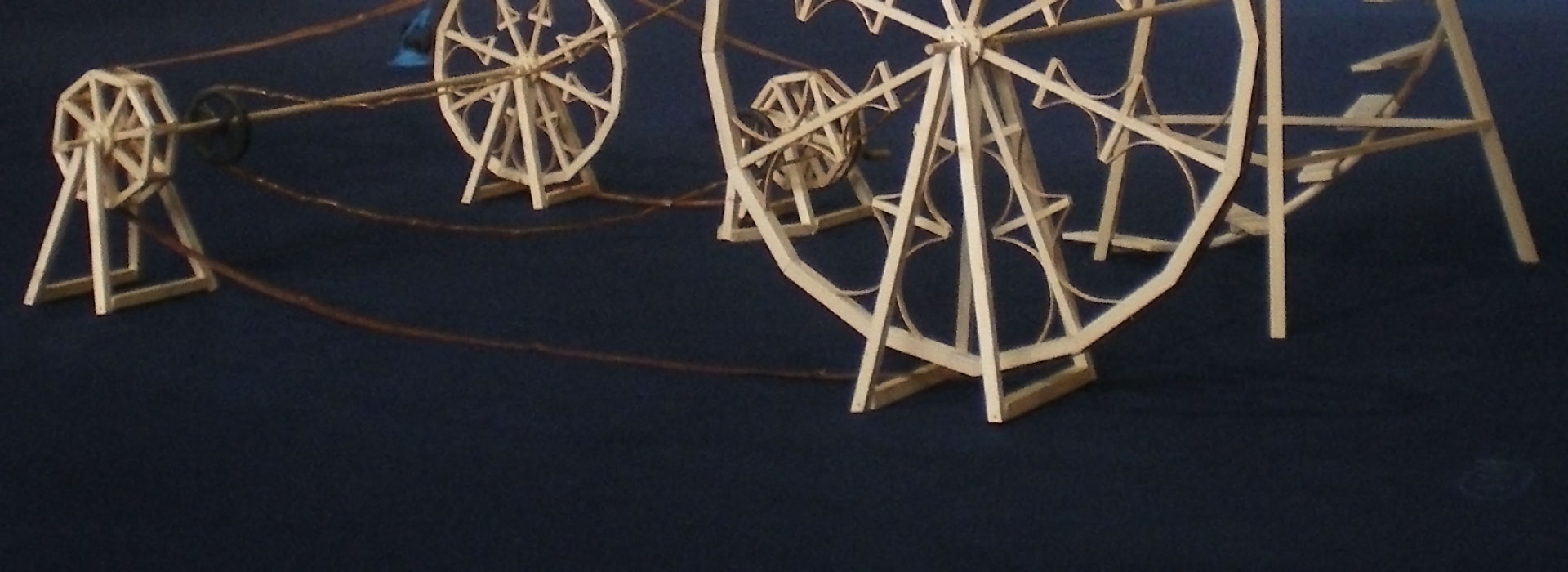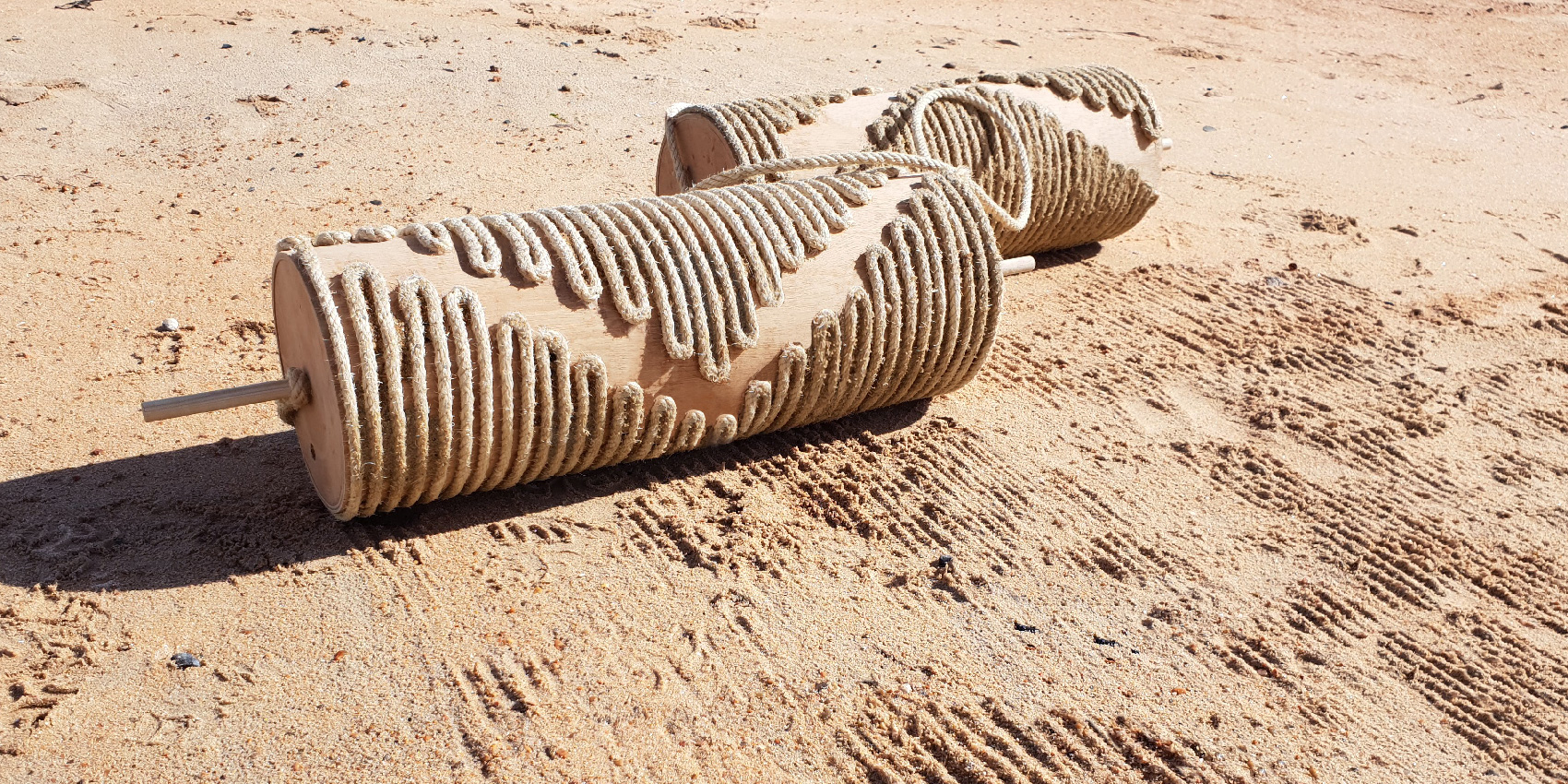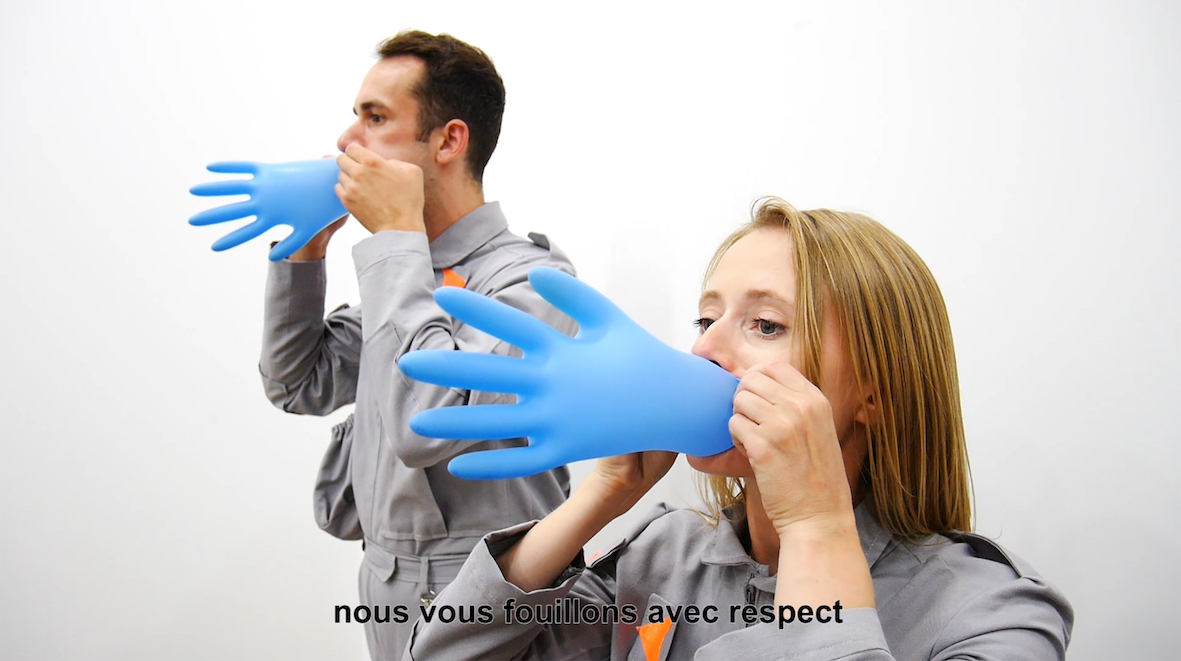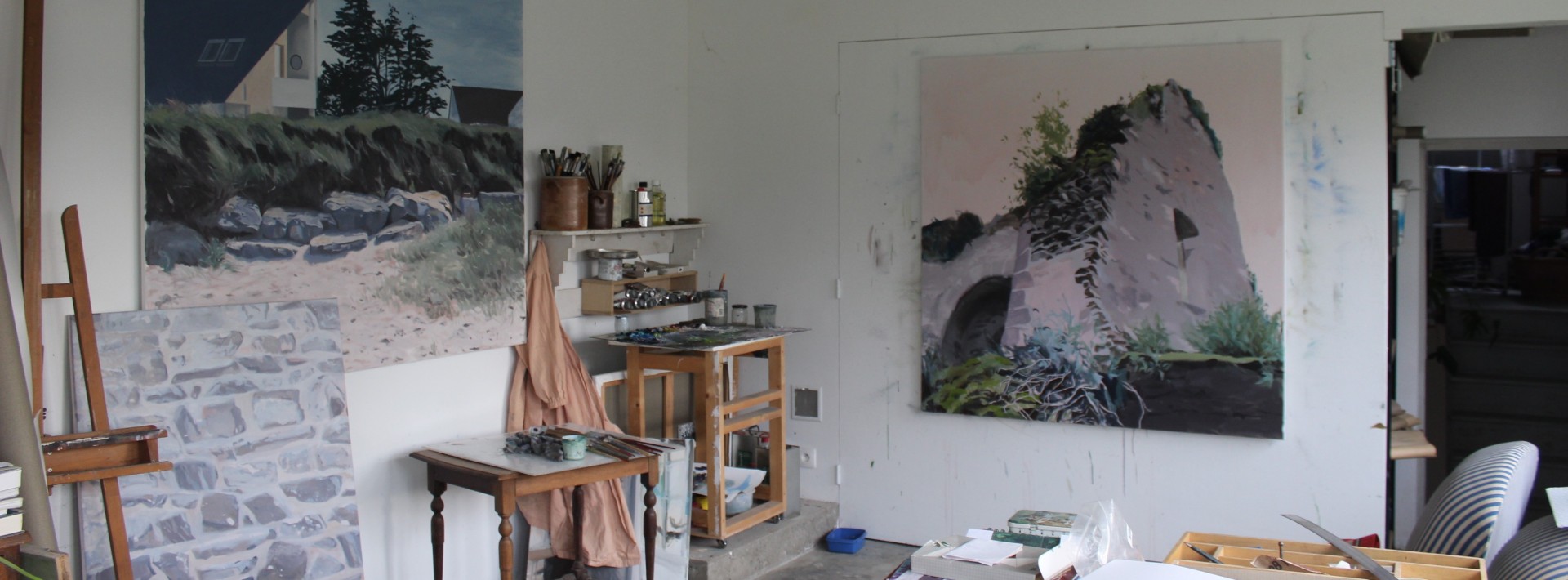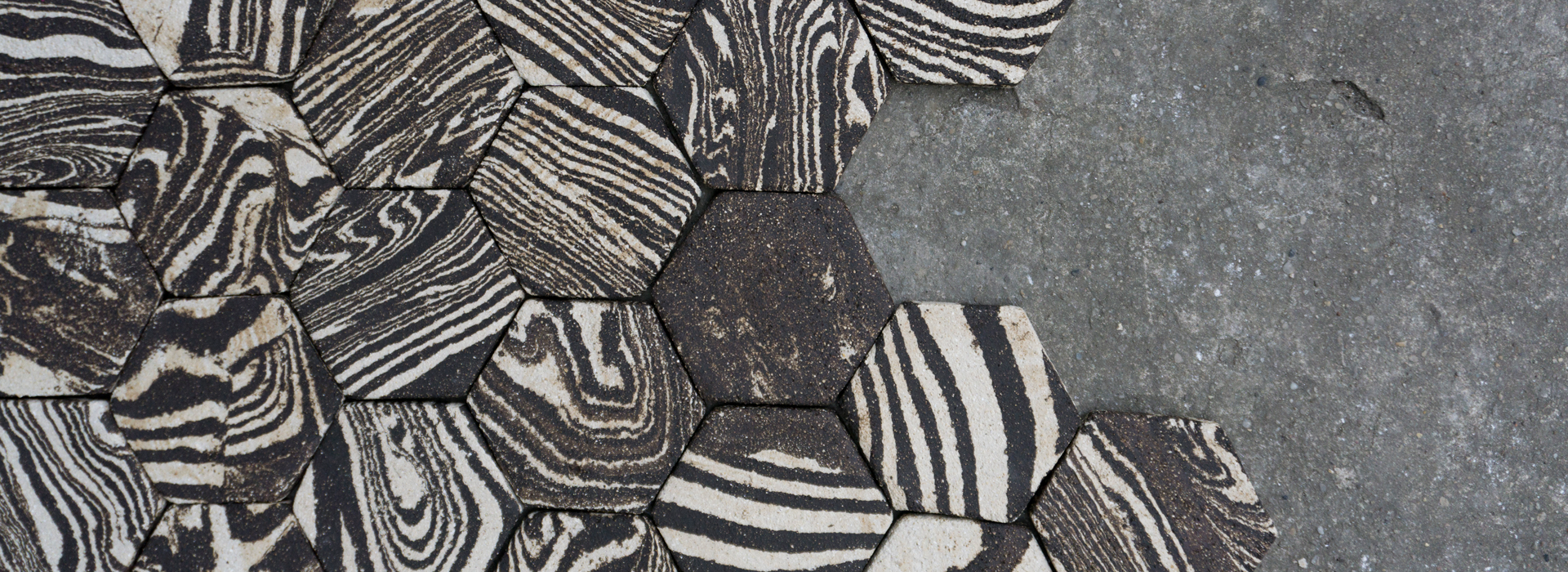The poetic nature of Masahiro Suzuki’s work stems from its sensitive relationship to its immediate surroundings. Using a vocabulary of simple gestures (picking up, assembling, setting upright…) and natural materials collected in the forest, or other more hazardous ones found in his studio or around town, he composes totemic sculptures that he lets freely interact with their environment. Combining earthy and plant-like atmospheric colours and at times dense builds (blocks), Masahiro Suzuki’s sculptures seem to contain the ambivalence of a powerful yet harmonious nature. What matters in his volumes is first and foremost the way in which they are painted, and what is most obvious about them is the fragile balance of colours echoing that of the masses. Masahiro Suzuki’s works are infused with a highly personal perception of the world, and appear before us in all their subtle alchemy.
The poetic nature of Masahiro Suzuki’s work stems from its sensitive relationship to its immediate surroundings. Using a vocabulary of simple gestures (picking up, assembling, setting upright…) and natural materials collected in the forest, or other more hazardous ones found in his studio or around town, he composes totemic sculptures that he lets freely interact with their environment. Combining earthy and plant-like atmospheric colours and at times dense builds (blocks), Masahiro Suzuki’s sculptures seem to contain the ambivalence of a powerful yet harmonious nature. What matters in his volumes is first and foremost the way in which they are painted, and what is most obvious about them is the fragile balance of colours echoing that of the masses. Masahiro Suzuki’s works are infused with a highly personal perception of the world, and appear before us in all their subtle alchemy.
The poetic nature of Masahiro Suzuki’s work stems from its sensitive relationship to its immediate surroundings. Using a vocabulary of simple gestures (picking up, assembling, setting upright…) and natural materials collected in the forest, or other more hazardous ones found in his studio or around town, he composes totemic sculptures that he lets freely interact with their environment. Combining earthy and plant-like atmospheric colours and at times dense builds (blocks), Masahiro Suzuki’s sculptures seem to contain the ambivalence of a powerful yet harmonious nature. What matters in his volumes is first and foremost the way in which they are painted, and what is most obvious about them is the fragile balance of colours echoing that of the masses. Masahiro Suzuki’s works are infused with a highly personal perception of the world, and appear before us in all their subtle alchemy.
The poetic nature of Masahiro Suzuki’s work stems from its sensitive relationship to its immediate surroundings. Using a vocabulary of simple gestures (picking up, assembling, setting upright…) and natural materials collected in the forest, or other more hazardous ones found in his studio or around town, he composes totemic sculptures that he lets freely interact with their environment. Combining earthy and plant-like atmospheric colours and at times dense builds (blocks), Masahiro Suzuki’s sculptures seem to contain the ambivalence of a powerful yet harmonious nature. What matters in his volumes is first and foremost the way in which they are painted, and what is most obvious about them is the fragile balance of colours echoing that of the masses. Masahiro Suzuki’s works are infused with a highly personal perception of the world, and appear before us in all their subtle alchemy.
